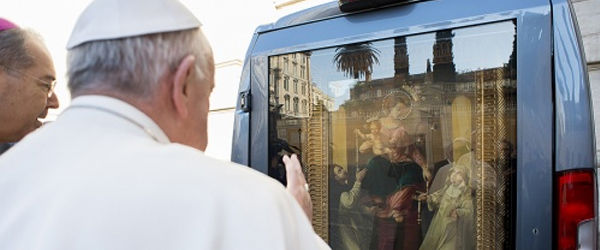America’s Catholics have been faithful citizens since before this country had a name. The first missionaries set up schools and basic human services. They helped form local economies based on farming, handicrafts and light manufacturing. A generation before the American Revolution, Ursuline sisters from France were running an orphanage, a hospital and a girls’ school in Louisiana — serving mostly non-Catholics. Since those early days, individual Catholics and Church institutions have been engaged in social ministries serving the common good of our society — schools, hospitals, all sorts of different charities. In addition to these good works, Catholics have always been a force for social reform and justice — from the anti-slavery movement to the civil rights struggle, to our work today to end abortion and the death penalty and to find a just solution to the issue of immigration.We have been blessed to live in a country where our religious values and our faith-based contribution to our public life have been respected and valued. That’s why the government at all levels has always worked with Church agencies to provide vital social services. This partnership has served the American people well throughout our history. But in recent years, our relationship with the government has been strained by the pressures of secular thinking and secular politics. We are all aware of the federal government’s demands that Catholic and other religious institutions start paying for their employees’ birth-control and abortion-causing drugs, as well as sterilizations and other services. But that’s only one blatant example. Every day, all across the country, Church agencies are being pressured to go along with government dictates that violate our religious liberty and our conscience. In some cases, Church agencies have been forced to shut down rather than compromise our Catholic teachings.That’s why religious liberty is one of the key issues we face as Catholic citizens in this election year. There is no question that in recent years our nation has taken a hard secular turn — and there seems to be no turning back or changing direction.In the coming years, I think Catholics are going to need to do some critical thinking and soul-searching about our place in a radically secular, “post-Christian” America. The basic question is this: How are we going to live and work and carry out our Christian mission in an America where religious faith and conscience are no longer respected? This is a new moment for Catholics and the Church in America. At different points in our history, we have faced anti-Catholic bigotry and discrimination. But never before have we faced a situation in which our government has been actively opposed to Catholic teachings and practices. So religious liberty is a crucial issue in our times. We must defend the Church’s freedom to carry out her ministries without government intrusion. We must defend Catholics’ rights to live and participate in society according to their conscience. But even more important than religious liberty is what we do with that liberty. This new moment calls us to a renewal of our faith — and a new commitment to living our faith in society. Now, more than ever, we need to know our faith and we need to have the courage to bear witness to our beliefs and the teachings of the Church. That’s why I strongly recommend that in this election year each of you read the U.S. Catholic Bishops’ statement, “Forming Consciences for Faithful Citizenship.” It is available on a special website set up by the bishops, which also contains many of the bishops’ statements on social issues www.faithfulcitizenship.org. I will post a link to that website on my Facebook page. In this document, the bishops don’t try to tell you how to vote. Instead, we offer principles and considerations for helping you to form your conscience so that you see the world in light of God’s truth. This formation of conscience is an important duty for all of us. The bishops rightly say that “all issues do not carry the same moral weight and the moral obligation to oppose intrinsically evil acts has a special claim on our consciences and our actions.” That means our priority must always be to promote the sanctity of human life and the right to life — especially for the unborn, the aged and the sick. Unless the right to life is protected, all other rights in our society are at risk. The right to life is the foundation of every other right and liberty and the true foundation of justice and peace in society. So let’s keep praying for one another and for our country. And let us ask our Blessed Mother Mary to help us to have the courage to grow in our commitment to being faithful citizens of this great country. Follow Archbishop Gomez at: www.facebook.com/ArchbishopGomez.{gallery width=100 height=100}gallery/2012/1005/gomez/{/gallery}

